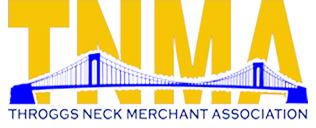Dear Friend,
As our city confronts the devastating COVID-19 pandemic, many New Yorkers have questions about rent and mortgage payment deadlines and other pressing housing-related needs. During this difficult and confusing time, we want to provide New Yorkers with information about their rights as tenants and homeowners amid this pandemic and offer information about where to turn for additional help.
Renters
Eviction Moratorium: While all rents are still legally owed, you cannot be evicted in New York State for any reason, at least until June 20, 2020. This also applies to eviction orders that were issued but not carried out prior to the eviction moratorium commencement on March 16, 2020. DO NOT ATTEND HOUSING COURT FOR AN EVICTION CASE. YOU WILL NOT BE PENALIZED FOR FAILING TO APPEAR!
City Marshals: NY’s Chief Administrative Judge’s Memo suspended eviction proceedings, and Mayor de Blasio has reinforced the moratorium decision with a 90-day halt of related City Marshal activities. (Source)
Emergency Repair Cases: While eviction proceedings are halted, New York City Housing Courts are still hearing serious issues related to heat and hot water, landlords locking tenants out of apartments, lead, and other serious housing code violations. Tenants can still initiate those actions, and Legal services groups are representing tenants in these categories if they are at or below 200% of poverty ($43,440 for a family of 3).
Lease Expirations: If your lease is expiring on April 1st or anytime during the COVID-19 pandemic and you want to renew, you should try to work with your landlord to extend the current lease or proceed with a month-to-month extension. The resulting correspondence and agreement should be done over e-mail so that there is a paper record of the precise terms agreed upon.
Rent Increases: As usual, your rent in a market rate apartment cannot be increased until your current lease expires. All rules regarding notice about rent increases also apply. Landlords are still required to provide a minimum of 30-days notice of rent increases above 5 percent for tenancies of less than a year, and up to 90 days for longer tenancies of two years or more.
Discrimination: In addition to the prohibition against discrimination based on perceived or actual race, national origin, disability, or other protected classes, your landlord cannot harass or discriminate against you due to fears regarding COVID-19.
Moving Apartments: If absolutely necessary, you can still move during the outbreak, as moving companies are deemed “essential” by the State.
Construction: To minimize people entering and exiting your building, only essential construction work is allowed in the city. Construction sites must adhere to social distancing and maintain best practices for the prevention of virus spread. There is a fine of up to $10,000 per violation. (Source)
NYCHA: If you live in a NYCHA development and have lost 5 percent or more in income for two months or more, and your rent exceeds 30 percent of household income, you may be eligible for a rent reduction. NYCHA residents who meet those qualifications should request an income recertification through the NYCHA Self-Service Portal or through their local management office.
Homeowners
Mortgage Payments: All state regulated mortgage lenders are being urged — but not required — to defer mortgage payments for 90 days, meaning those payments will be added to the end of your mortgage term. You should check with your lender to confirm specific bank policies. (Source)
If your loan is owned by Fannie Mae or Freddie Mac, you may be eligible to delay making your monthly mortgage payments and receive other relief for 3 months. To find out if your loan applies, you can use “loan lookup” tools:
· Fannie Mae: https://www.knowyouroptions.com/loanlookup
· Freddie Mac: https://ww3.freddiemac.com/loanlookup/
Credit Scores and Fees: The Governor’s Executive Order also directs state-regulated banks to hold off on reporting late payments to credit agencies, offer a grace period to complete loan modifications, waive late payment fees, and postpone foreclosures. (Source)
Stimulus Payments and Assisted Housing: Stimulus payments (individual checks) recently approved by the federal government are not counted towards annual income for those receiving Section 8 or living in NYCHA units (24 CFR 5.609-c).
NYC Lien Sales: If you received a 90-day or 60-day lien sale warning, the City has extended the deadline for selling the lien on your property. The 2020 sale of New York City liens was scheduled for May 15, 2020 but is now postponed. (Source) However, if possible, you should pay what you owe or enter into a payment agreement plan.
Additional Resources
If a City Marshal tries to evict you: Call NYC Department of Investigation (DOI) Bureau of City Marshals at (212) 825-5953.
For information regarding emergency repair or other housing related legal actions: Visit www.nycourts.gov or call (833) 503-0447 (toll-free)
Housing Court Questions: Housing Court Answers, call 212-962-4795 or 718-557-1379
Fill out this form to report discrimination: Click here.
For general questions regarding housing rights and protections: Call the Legal Aid Society at (212) 577-3300.
Sincerely,
Scott

Comments are closed.